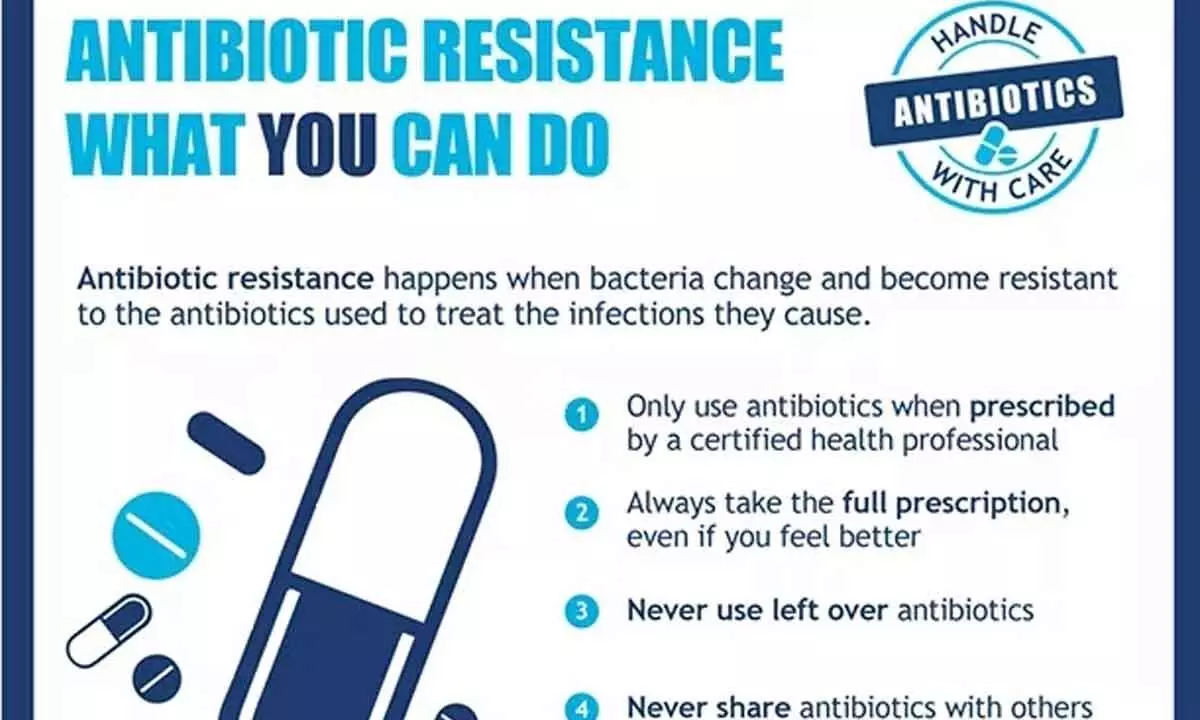AMR and the need for One Health Approach

Antimicrobial resistance (AMR) is an urgent global public health threat that is driven at large by injudicious anti-microbial use across human, animal, and plant health sectors
Why AMR is a global concern
AMR is not a new post-pandemic threat but has been on the rise for many years. Research suggests that almost every major public health emergency since the past century, has resulted from the crossover of pathogens from animals to humans2. Recently, the Lancet review in 2019 pointed some alarming global statistics; it studied the deaths and disability adjusted life year (DALY's) attributable to, and associated with, bacterial AMR for 23 pathogens and 88 pathogen drug combinations covering 204 countries. An estimated 4.95 million deaths were associated with bacterial AMR and 1.27 million deaths were directly attributed to bacterial AMR. Six bacterial pathogens were directly responsible for nearly 70% of the deaths. It also showed that AMR is a leading cause of death around the world whose magnitude is at least as large as major diseases such as HIV and Malaria; enveloping its highest burden in low-resource settings.AMR is a complex health challenge and requires a "One Health Approach" to handle it.
Pandemic added to AMR concerns
Humanity witnessed one of its worst healthcare crisis when the pandemic hit us in 2020. The COVID-19 pandemic saw increased overuse and misuse of broad spectrum Antibiotics which further had a devastating impact on the AMR stewardship programmes. A report by Centre for Disease Control (CDC) highlighted the country-level estimates of the effect of COVID-19 on antimicrobial resistance in the USA; pointing a 15% increase in drug-resistant nosocomial infection rates in 2020 compared to the previous year3 .
India's G20 Presidency a great opportunity
The need to develop policies, invest in research and build the ecosystem to strengthen the connection between Environment, human and animal health has been highlighted as a top priority at all global high level fora ranging from the discussions in UNGA, G7 to G20 Presidencies.
India has always accorded top priority to One Health and AMR and was one of the first few countries which developed a comprehensive National Action Plan (2017-21). Building on the principle of "Atmanirbharta" or self-reliance and acting upon the traditional ethos of "VasudhaivaKutumbhkam" or the world is one family, the country has worked relentlessly to offer health solutions as a service to humanity. COVID 19 was an example where India led the war against the pandemic from the front, playing an exceptional role in developing high quality and cost-effective healthcare interventions —from indigenously developed vaccines not just for itself but over 100 countries, to offering Co-WIN platform as a digital public good to the world, to being self-reliant in diagnostics,masks and PPEs.
AMR is also a very high priority on the health agenda of the G20 countries and all member- countries have well-developed NAPs.The key challenges faced in effective implementation are surveillance and research and the need for more comprehensive engagement with the vetinary and agriculture sector and the connections with environment. We have seen countries like Brazil showing a reduction in Antibiotic use,Indonesia developing good surveillance plans, Australia prioritizing animal health and reducing antibiotic use in livestock and the UK and US investing in research to develop new diagnostics, drugs and vaccines as some examples of AMR -NAP implementation.
With India now taking on the Presidency of G20, it is imperative that we take this agenda forward considering that AMR is one the top most health priorities and also considering that the Global Call to Action on AMR also has urged the G7 and G20 countries for a continued and renewed commitment to implement their NAPs thus through a coordinated approach ensure investments flow into the national and multi-sectoral action plans.
AMR: Way forward
Some of the immediate steps to tackle global AMR concern are to launch a Global One Health Consortium having a common vision and mission, connect health targets and policies with SDGs and ensure One Health is center staged, prioritize research for new diagnostic, antibiotics, vaccines and build a strong demand driven market to ensure an assured supply and well-structured supply chain.
Sufficient scientific data needs to be generated to help drive evidence based policy decisions. While human health issues are getting discussed, it is time to focus our attention on animal and environmental health monitoring.
Extensive porous borders and an increase in international and national travels also increases the transboundary movement of pathogens. All these factors, increase the possibility of disease outbreaks, rapid spread and prevalence of zoonosis. A holistic approach to anticipating and solving public health challenges is critical.If it is "One health" it has to be "One World" —we need Global access to resources, shared infrastructure, globally accessible repositories, and a Global consortia for exchange of knowledge to meet global targets and help plan both new surveillance and monitoring strategies and also develop new products.
Recently the world collectively fought against one of the deadliest pandemic, COVID-19. It was a global challenge and therefore, it was all hands on the deck —anyone who could contribute in any way, did! - each one wanted to be a foot soldier in the war against the deadly virus. It's time we need to now sound the war bugle for AMR and One Health.
{1 https://www.who.int/news-room/fact-sheets/detail/antimicrobial-resistance#:~: text=What%20is%20 antimicrobial%20 esistance%3F, spread%2C%20severe%20illness%20 and%20death.
2 Issue Note, 1st Health Working Group Meeting
3 https://www.thelancet.com/journals/lanmic/article/PIIS2666-5247(22)00227-0/fulltext}
Dr Renu Swarup








